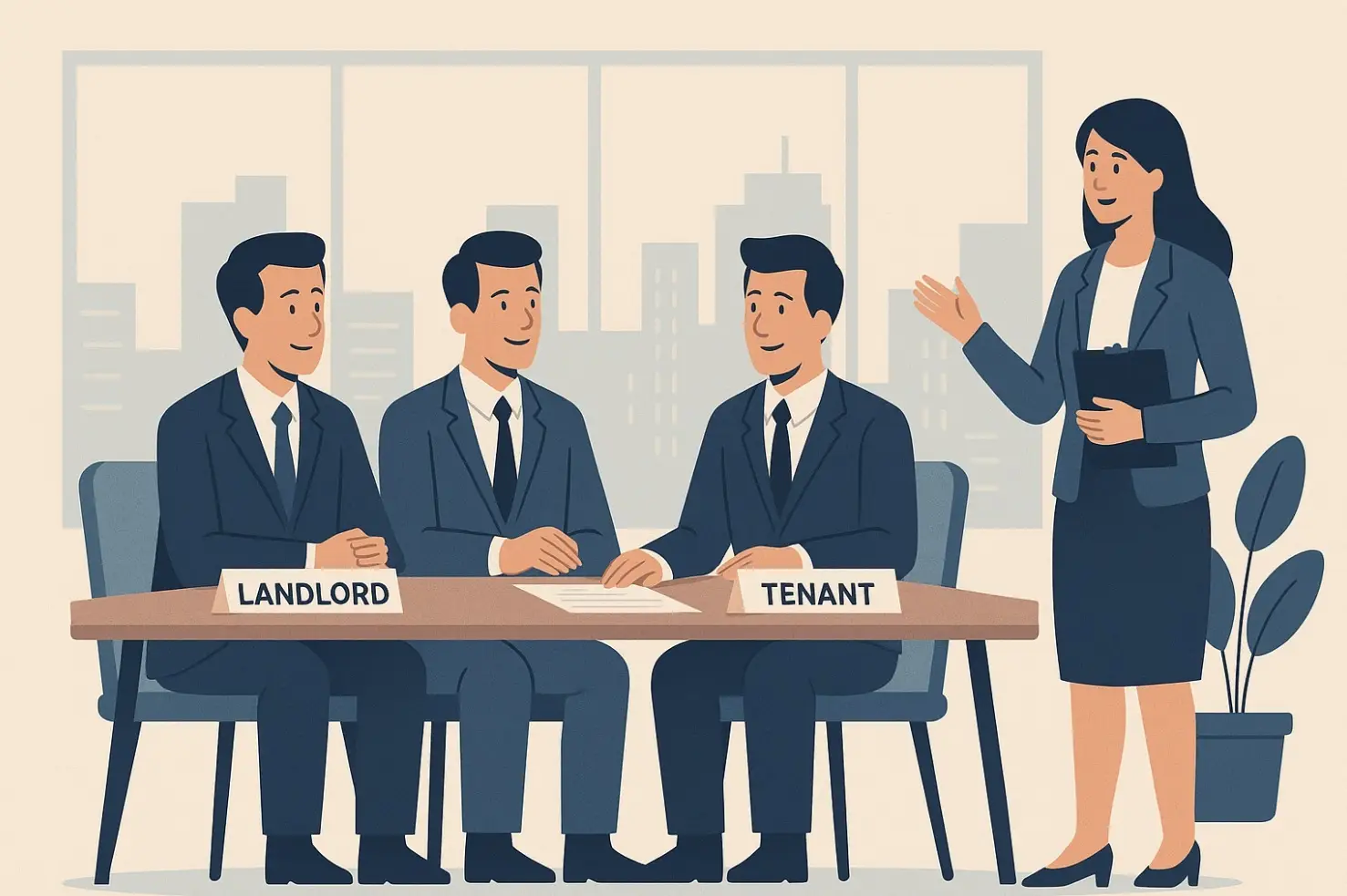Key Takeaways
- Expert brokers help landlords attract stable, long-term tenants who are the right fit for their property.
- Clear communication and fair negotiation are essential to healthy, long-term commercial leases.
- In Malta’s evolving commercial market, a broker’s local insight reduces risk and improves returns for both landlords and tenants.
The relationship between a commercial landlord and tenant is more than just a lease—it’s a partnership that can shape the long-term success of both parties. In Malta’s competitive commercial real estate market, where demand is strong and expectations are rising, brokers play a vital role in maintaining healthy, productive relationships that go beyond the contract.
At MaltaOffices.com, we’ve worked with hundreds of landlords and tenants over the years. Here’s how a knowledgeable, locally focused broker strengthens the landlord–tenant dynamic in Malta’s commercial property landscape.
1. Strategic Tenant Matching
One of the most critical roles of a broker is to match the right tenant with the right property. In Malta, this means understanding the operational needs of the tenant—be it a gaming company needing high-spec infrastructure or a law firm looking for a prestigious Valletta address—and aligning them with a landlord’s space and goals.
A skilled broker filters out misaligned prospects and brings in serious, well-qualified businesses that are likely to thrive in the space, reducing vacancy and churn.
2. Transparent Communication
A broker doesn’t just facilitate the deal—they manage the conversation. Whether it’s clarifying lease clauses, translating technical fit-out timelines, or discussing expectations for maintenance and upgrades, clear communication helps avoid misunderstandings down the line.
In Malta’s mixed property landscape, where heritage buildings and new developments coexist, being able to explain what’s realistic—and what’s required—is essential for both sides.
3. Balanced Negotiations
Every lease negotiation has moments of tension. The broker’s job is to balance interests fairly—ensuring landlords protect their investment while helping tenants secure terms that enable their success. In Malta, where rental values and service expectations can vary dramatically between locations like Sliema, Gżira, and Mriehel, this balance requires local insight and commercial acumen.
The goal is a lease that feels like a win-win, not a compromise.
4. Ongoing Relationship Management
Good brokers stay in the picture after the lease is signed. Whether renegotiating lease extensions, managing subleasing requests, or advising on market adjustments, the broker remains a point of trust for both landlord and tenant.
This ongoing involvement builds trust, resolves issues before they escalate, and ensures both parties continue to benefit from the relationship.
5. Market Intelligence and Advisory
In Malta’s dynamic commercial property sector, trends can shift quickly—especially in high-demand zones like St. Julian’s or the Central Business District. Brokers offer more than matchmaking; they provide strategic advisory based on real-time data, tenant movements, and future demand forecasts.
For landlords, this means better planning and pricing. For tenants, it’s access to the right space at the right time—often before it even hits the market.
Conclusion
In today’s market, the right broker does more than close deals—they create lasting business relationships that drive growth, stability, and mutual success. In Malta’s evolving commercial real estate scene, this role is more valuable than ever.
At MaltaOffices.com, we bridge the gap between landlords and tenants with professionalism, market expertise, and a commitment to long-term success. Whether you’re looking to lease out your commercial property or find the ideal space for your business, our team is here to guide you with experience, transparency, and trust.



